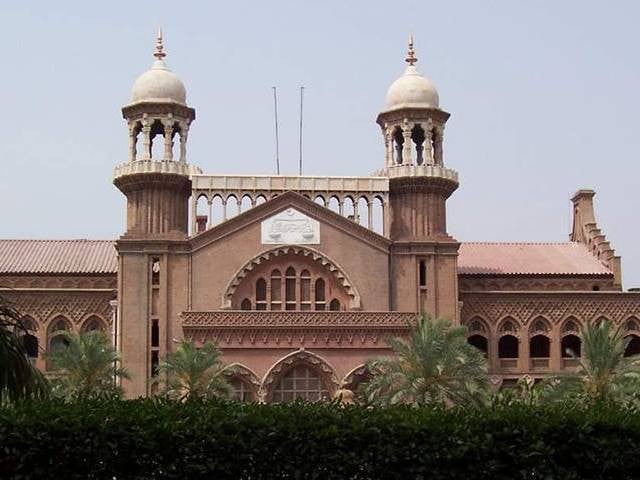LAHORE (Agencies): The Lahore High Court (LHC) has sought the replies from Punjab Governor Balighur Rehman, Election Commission of Pakistan (ECP), and others over the current progress on a plea seeking contempt proceedings against them for not complying with the court’s order of holding elections within 90 days.
The petitioner’s counsel, advocate Azhar Siddique, implored the court that governor Punjab, chief election commissioner, members ECP, secretary ECP and others have completely failed in complying with the court’s order issued on February 10, 2023.
During the hearing, Justice Jawad Hassan asked whether the ECP had filed an appeal. Siddique also read out the press release of the ECP saying the governor has refused to announce the election date. To this, Justice Hassan remarked the court does not believe in press releases. Advocate Siddique implored the court that the provision of Article 204 of the Constitution clearly states that the high court can punish any officer if he or she abuses, interferes, obstructs or disobeys its order.
To this, the additional attorney general argued that following the LHC’s judgment, the ECP is convening meetings on a day-to-day basis for consultation with the governor and in this regard, a meeting is also being held today (February 15). Responding to the remark, Siddique stated that the law officer should obtain fresh instructions from his client to further assist the court.
He argued that the CEC failed to adhere to the aforementioned judgment by not announcing the election date even after having consulting with the governor. “It is dire violation of Articles 4 and 5 of the Constitution as well as the oaths, as had been, respectively, taken by the Chief Election Commissioner of Pakistan and the Governor, Punjab as it is the constitutional mandate of their respective offices to set a date for the ‘Election’ and work alongside each other for conducting a fair and transparent election,” he added. Justice Hassan issued notices to respondents and sought their replies by February 23 about progress made thus far in the matter on or before the next date of hearing.
Court directs federal, provincial govts to submit replies in plea against custodial torture: The Lahore High Court (LHC) has sought replies from federal and provincial governments and others on a plea against custodial torture and the conduct of humiliating citizens and politicians in custody while depriving them of their basic fundamental rights.
Justice Jawad Hassan presided over the hearing in which the court was requested to pass directions to the concerned quarters to promulgate the Torture and Custodial Death (Prevention and Punishment) Act, 2022 and devise policies, mechanisms and regulations in order to safeguard the lives of the citizens of Pakistan including those who are in the custody of the authorities and are suffering torture at their hands.
During the hearing, Pakistan Tehreek-e-Insaf (PTI) senior leader Fawad Chaudhry made remarks and said that it “depends upon the mood of the institutions whether or not and when they will act upon the Constitution”. He implored the court that although Pakistan is a party to the United Nations Convention against Torture and other Cruel, Inhuman and Degrading Treatment or Punishments 1984, it is imperative to make laws for its effective implementation.
The additional attorney general remarked during the hearing that there is a “need to look into the criminal procedure with a constitutional eye”. The petitioner’s counsel, advocate Azhar Siddique, implored the court that the Constitution does not allow such treatment, arguing that “it is an inhuman act through which they [poloticians] are being treated”. Advocate Siddique added that the enforcement of fundamental rights is required as the executive has utterly failed to perform its duty.
He added, “It is an admitted fact that it has taken 75 years for Pakistan to enact legislation that comprehensively criminalise custodial torture. With the Torture and Custodial Death (Prevention and Punishment) Act, 2022, awaiting only presidential assent, Pakistan is on the verge of a milestone representing a seismic shift away from decades of indifference to torture committed by public officials.”
Siddique furthered that a look at Pakistan’s fragmented domestic framework on custodial torture prior to the new law reflects a muddled situation. Articles 10A and 14 of the Constitution provide only a rudimentary legal structure enshrining the right to a fair trial and the dignity of man. Article 14(2) provides the only explicit mention of torture in the Constitution but prohibits such an act when committed “for the purpose of extracting a confession” only. He also contended to the court that there had been no definition of torture under Pakistani law.
“Pakistan Penal Code (PPC) criminalises specific acts that are ancillary to torture such as assault, murder and wrongful restraint. While this means that certain acts overlapping with some aspects of torture could be triable, there remained a disjointed framework bereft of a torture-centric lens: one that was scattered, inaccessible and prone to incompletely recognising all forms of torture,” added Siddique. He further said that many of these offences under the PPC were compoundable, and that is a compromise could be affected, adding that this allows officials to escape accountability.







